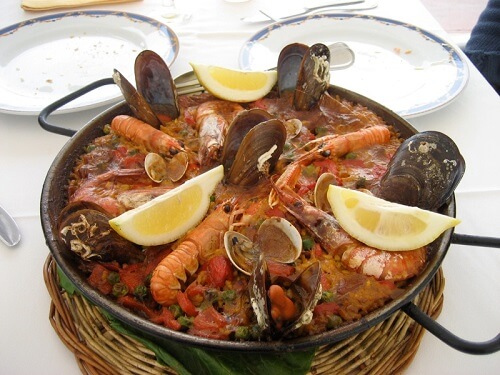How to Deal with Culture Shock - Spain
Being introduced to new and foreign cultures greatly benefits travellers by widening their worldviews, and allowing them to understand a culture in-depth with personal experiences. This process can also be overwhelming, to the extent of “shocking” the travellers by the differences of cultural elements, hence the term culture shock. Specifically, the definition of culture shock is “a sense of alienation towards a host cultural environment on the part of a foreign visitor” or “the difficulty people have adjusting to a new culture that markedly differs from their own.”
Every person will have a different experience of culture shock, but rarely will people not have any reaction at all. Some people won’t get overwhelmed right away, but sooner or later it will hit; a feeling of “what am I doing here?” The plus side of all this is there are ways to combat culture shock and to deal with it so you aren’t upset or anxious about the remainder of your time abroad. Here are some examples of things that can trigger culture shock in Spain, and ways to adjust your thinking about them so you won’t get blindsided by them.
Politeness
If you translate a sentence from English into Spanish directly, it’s likely to be misunderstood. As mentioned in previous articles, any attempt to speak the language will be well-received, though direct English to Spanish translations are often considered tedious as the Spanish prefer shorter and snappier phrasing to the formal sentences. Additionally, pleases and thank yous are often optional in day-to-day interactions and customer service isn’t as drummed into employees as it is in other places. Don’t get offended if people ask you a direct question or “demand” a service from you—they likely aren’t trying to be rude, rather it’s their normal way of conversing. Instead of getting thrown by this difference, try to use it to your advantage. After a few encounters you are sure to pick up the phrasing and non-verbal actions of the locals and you can adapt their practices to avoid any uncomfortable moments in future conversations.
Concept of Time & Siestas
In general, Spaniards do not put a great amount of emphasis on time. Life is more laidback and relaxed and very few things are done in a hurry. Nothing happens quickly, and your frustration and urgency will fall on deaf, slightly annoyed Spanish ears. It will be infuriating at first, but eventually you learn to let it go and move on.
Many places in Spain still observe the siesta, or a long break between 2pm and 5pm where many people will return to their homes for lunch or for a nap. This will likely affect your ability to visit some places during times you would normally expect them to be open. This practice is slowly disappearing in bigger cities like Madrid and Barcelona, but it is still prevalent. Always check opening times for museum and other attractions before you head over there, and if they are closed even when they should be open, try to take it in stride. Do something else or just explore until you can head back to the museum—you won’t waste time and will likely come across something else exciting to do or experience.
Food and Meals

When you think of Spanish food, you’ll probably picture perfectly plated tapas, presented on quaint crockery with pitchers of fresh sangria being passed around a lively table. Unlike this dream experience, your first run-in with Spanish food is not likely to be as picture perfect as all of that. Instead, you may end up eating at a place you find in a guidebook that quickly serves you a plate of meatballs drenched in oil. It will quickly hit you that relying on a guidebook or choosing randomly will not always work in your favour. Try to suss out the places where the locals go to avoid being disappointed on your first few days in Spain.
Working in conjunction with the lack of emphasis on timing, food and meals and regular dining times will be different in Spain than in Australia. You are probably used to eating dinner, the biggest meal of the day, at around 6-8pm. In Spain, they consider their mid-day meal the biggest meal of the day and dinner is often enjoyed later in the evening, around 9-10pm. You can offset this new mealtime schedule and your hunger by enjoying a light supper or a few plates of tapas before the full meal later in the night.
When you are travelling abroad in Spain, it is important to stay in the right mindset, to stay open to trying new things and to appreciate any cultural differences that make themselves obvious. Every time you wade into an international encounter you should remember that their norms will be different from your own. If you take it into account, you’ll be far better prepared during your journeys. Prepare for the rest of your holiday by considering a budget travel insurance plan from Cover-More Australia where you can get the cover you need at a cost you can afford.
Image courtesy of Flickr user Christian Van Der Henst S.
Planning a trip?
Discover Our COVID-19 Cover
To find out what our current* benefits do – and don’t – cover, please read:
Plus, for helpful destination-based COVID-19 information, don't forget to check the COVID-19 Travel Risk Tool before and during travel.
*The cover information contained on the above pages refers to Cover-More policies sold on or after 26 June 2023. For cover information on policies sold prior to this date, please read the relevant PDS.